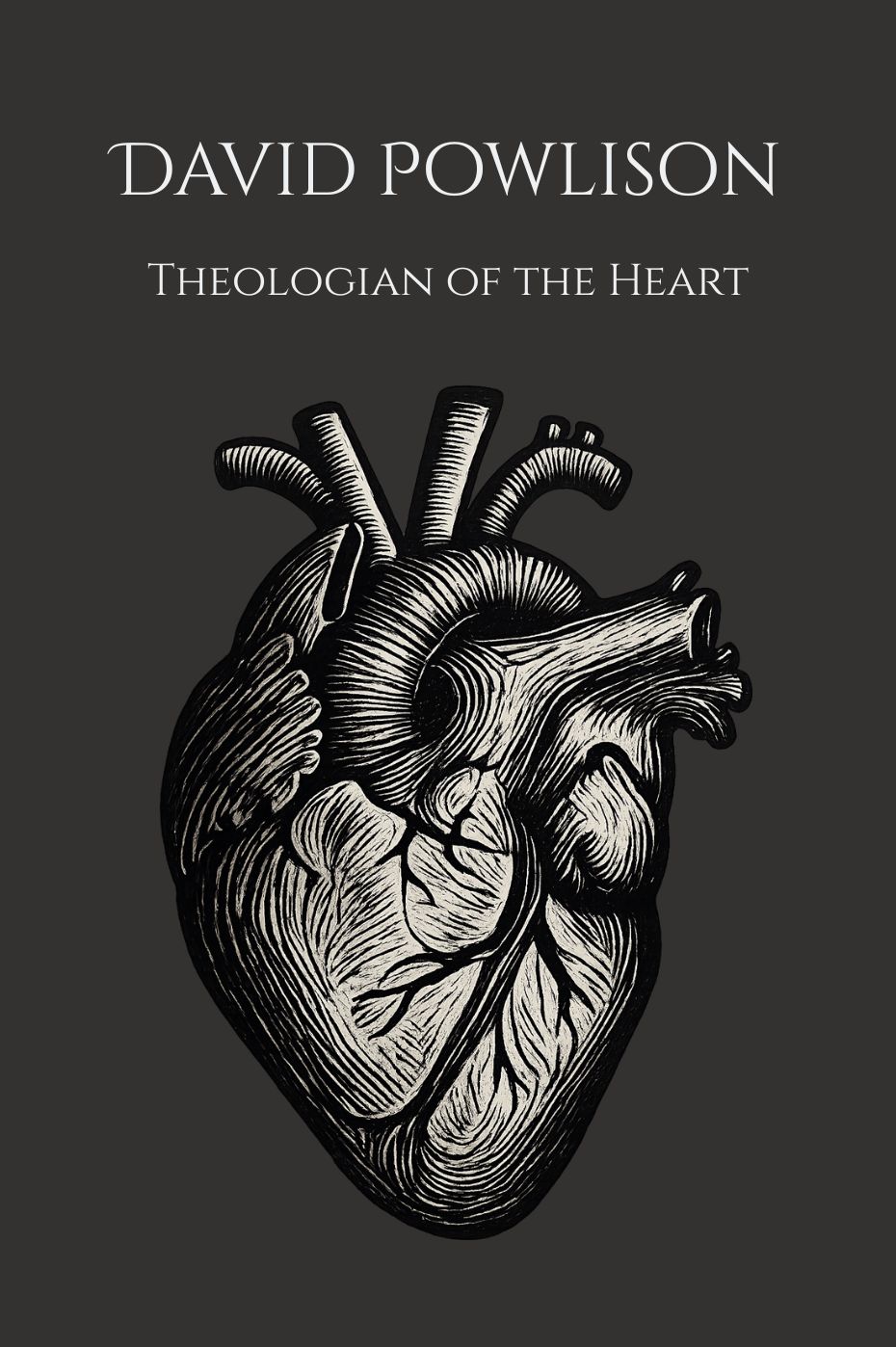How do you learn more about what it means to be a human? There's a scad of answers, and they're always multiplying. But I've still found John Calvin's the most creative: stare at God (Institutes 1.1.1). If you want to learn about what it means to be human, gaze at your Maker. The longer you stare, the more you'll see—both about yourself and about him. But this doesn't mean you'll get the answers you want without any mystery. After all, we are God-gazing. You will find enough to keep you on your knees. That, and much more, I took from Vern Poythress's latest book, Making Sense of Man.
What I Loved
Poythress's book comes at a time when human identity is as popular to discuss as it is difficult to define. (On defining identity, see "What Is Identity?") What we need, and what he provides, is a biblical survey of a spectrum of topics on anthropology: human origins, the image of God, the nature of sin, sexuality, body and soul, free agency, total depravity, and many more. He also introduces and applies what he calls the Lex Christi (law of Christ), developed by Dr. Timothy Yates (see Yates, Westminster Foundations: God's Glory as an Integrating Perspective on Reformed Theology). The lex Christi uses the Ten Commandments as perspectives on the attributes of God and our creaturely reflection of them. It continues to be an insightful tool for understanding more about who God is and who we are.
Throughout the book, Poythress uses four tools to organize his discussions of humanity: presuppositions, semantics, analogies, and metaphysical frameworks. Since these form the structure of many discussions, it would help to focus here.
Presuppositions
Whenever we come to any topic, we bring with us our presuppositions, our deepest assumptions about what is true. For example, many people in the world presuppose some form of what Poythress calls evolutionary naturalism—"the framework of assumptions that says that all living things today came to exist by gradual processes of impersonal law and chance, with no role for God or a supernatural being" (682). For a person influenced by this framework, any explanation of who people are, where they've come from, and how they function must align with assumptions about natural evolution. This, of course, excludes God's involvement in anything. So, when a person with this presupposition reads something like Genesis 1:26—"let us make man in our image, after our likeness"—it means almost nothing. The person's presuppositions have blinded him to the truth of God's special verbal revelation. Ask yourself, "What are my presuppositions when it comes to understanding who people are and what they are made for? Do I leave room for the Lordship of Christ and the sovereign plan of God?"
Semantics
Semantics "concerns the meanings of words or phrases or sentences. The main principle is simple: that people should take care to understand the working of language when they discuss meaning" (100). This includes things such as the range of meaning for words. For instance, how many different meanings are there for the word "image"? While there are answers to that question in English, there are also answers in Hebrew, the language in which the Old Testament was written.
Semantics also includes the influence of context. In one context, "Close the door" could be a gentle request; in another, it could be a shouted command. The Bible is full of diverse contexts, and all of them, to some degree, are related because the Bible is one book by a single ultimate author: the Holy Spirit.
Words vs. concepts is another component of semantics. Just because a particular word isn't in a sentence or paragraph doesn't mean the concept isn't. The word "Trinity" isn't in the Bible anywhere, and yet the Bible as a whole clearly teaches that God is triune. So, we must be careful to distinguish and relate words and concepts.
Another component of semantics is sense vs. referent. "The sense of the word or an expression is the meaning that it expresses—in a particular context. There may be different meanings in different contexts. The referent is the thing in the real world or an imaginary world to which the expression refers" (106). "The plaid jacket is my favorite coat." The expression "the plaid jacket" has a referent in the real world: in my closet. "Coat" has a sense (a meaning) that is commonly understood: a covering people put on to keep warm.
Semantics involves a lot of details, and so it may be intimidating to the average Bible reader. But one thing people can keep in mind is asking two questions when they read a passage of Scripture or even a single sentence: (1) What does this mean? (There could be several options.) And (2) How do I know it means this? These are questions of semantics.
Analogy
An analogy is "a comparison of two otherwise unlike things based on resemblance of a particular aspect." Analogies reflect relationships of similarity (not identity, but similarity). Poythress writes, "A lot of our knowledge depends on analogy. When a person's thoughts are rightly ordered by the Holy Spirit, they are analogous to God's thoughts. This principle holds true for all of a person's thoughts, both thoughts about God and thoughts about the world" (107). Why are analogies important for understanding who people are and what they do (anthropology)? Because Scripture is full of analogies that relate humans to God, including the famous statement about mankind being made in God's "image and likeness." In the New Testament, Jesus Christ is referred to as "the image of the invisible God" (Col. 1:15). Does that mean that we are identical with Jesus since we are both referred to as "images" of God? Remember that analogy involves similarity, not identity. Of course, Jesus was truly human, and so he could correctly refer to other humans as his "brothers and sisters" (Matt. 12:50; Mark 3:35). And yet Paul also says of Jesus:
He is the image of the invisible God, the firstborn of all creation. For by him all things were created, in heaven and on earth, visible and invisible, whether thrones or dominions or rulers or authorities—all things were created through him and for him. And he is before all things, and in him all things hold together. And he is the head of the body, the church. He is the beginning, the firstborn from the dead, that in everything he might be preeminent. (Col. 1:15-18)
Jesus is preeminent. His is highest. He is the original image of the Father after which we are patterned. So there is difference in addition to similarity. Always keep that in mind with analogies.
Metaphysical Framework
Lastly, Poythress reminds us of the importance of our metaphysical framework. For non-specialists, that simply means "what we assume about all that exists and how it exists." Think of it as a question: What is the ultimate nature of reality? For Christians, we can start in Genesis 1 and say that reality is spoken by God and upheld by the word of his power (Gen. 1:1; John 1; Heb. 1:3). We live in a divinely worded world.
We can never say what something is or why it is here without tying our answer to the anchor of God's presence and his plan for human history.
God is sovereign over and involved in every part of it. He is both transcendent and immanent. The ultimate meaning for anything in existence must go back to God. Any other metaphysical framework (usually stemming from secular philosophy) is misleading in this regard. We can never say what something is or why it is here without tying our answer to the anchor of God's presence and his plan for human history.
Putting It into Practice
Now, this all probably sounds complex. But an example might help. Take the common question, "What happens to us after we die?" Poythress calls this the "intermediate state." We can work through the four tools above in providing a response.
- Presuppositions: We presuppose that whatever Scripture says about life after death can be trusted without our testing. Scripture says that those who believe in Christ are immediately with the Lord Jesus the moment after we die. It's not just a part of us that goes to be with God, such as "our spirit"; it's us. Jesus tells the thief on the cross next to him, "Today you will be with me in paradise" (Luke 23:43). Paul says that he (not his "soul" or "spirit") longs to depart and be with Christ (Phil. 1:22-23). This is of great personal encouragement to us!
- Semantics: We need to keep in mind the difficulties with using "soul" or "spirit" as technical terms with rigidly fixed meanings. The biblical word translated as "soul"—psyche—has a range of use in the Bible, and so it is difficult to pin down a precise meaning that eliminates all mystery. (In fact, this is impossible with any word, because God is ultimately the Lord of all meaning in language, and he knows far more than we ever could!) Poythress warns that "a technical definition, with its built-in narrowness, cannot encompass simultaneously all of God's meaning in all the relevant passages" (294). All this means that we need to be careful about being overly simplistic and saying something like, "Well, our bodies go in the ground, and our soul goes to heaven." While that is true in a sense, we must make sure people know that we ourselves—with all of our personal particularities—are with God in heaven. We cannot so easily detach the elements of our being into "parts."
- Analogy: Poythress points out four main analogies that the Bible uses to describe our intermediate state: (1) another world, (2) sleep, (3) possessions lost or retained, and (4) housing. Sometimes the Bible talks about heaven as another world, a different place altogether, though still related in some way to this one. A good example is Luke 16:19-31. Othertimes Scripture refers to death as a kind of sleep, from which we will one day awaken (1 Thess. 4:14-15). Throughout the New Testament, Jesus refers to death as a leaving behind of certain possessions and an acquiring of what truly matters. "For whoever would save his life will lose it, but whoever loses his life for my sake will save it. For what does it profit a man if he gains the whole world and loses or forfeits himself?" (Luke 9:24-25). Lastly, Scripture uses the analogy of a house or covering (2 Cor. 5:1-10; 2 Pet. 1:13-15). Our death is a putting off of an old tent and taking up a lasting home with God. Taken together, these analogies reveal much of what we should expect when we die, even though we may still have unanswered questions.
- Metaphysical Framework: Finally, the metaphysical framework we have (that God has spoken this world into existence and upholds it by the word of his power) tells us that whatever remaining questions we may have about life after death, we will find Spirit-wrapped answers in the speech of God, in Scripture. The metaphysical framework of natural science, in contrast, would have us trust nothing but hard evidence. Such a framework would keep us doubtful to the very end. But that is not the framework God has given us. We believe in the tri-personal God who has spoken for our good. We strive, by the Spirit's own power, to trust him and take him at his word, even when we can't see the way ahead.
Favorite Quotes
There are too many to share a full list, so let me limit this to the top ten.
- "Each person serves an ultimate commitment. A person may not call it 'god,' but it serves as a god-substitute—it functions as something sacred, and the person reacts when his sacred thing or idea is attacked" (16).
- "The desire for mastery may drive [someone] to oversimplify and to treat ordinary terms as though they were technical terms, or to treat technical terms as though they did not involve a choice of focus. He may redefine a word meaning in a way that matches his larger system of assumptions" (124).
- "In our ordinary experience, beautiful things are attractive to us. We have a mysterious longing to become intimate with them. So beauty and intimacy go together, not simply in a husband's love for his wife (Song of Solomon), but more broadly. The source for both is found in God. God is himself beautiful, according to Psalm 27:4. In addition, God loves himself and is intimate with himself. We see this beauty and intimacy in the love of the Father for the Son (John 3:34-35) and the mutual love among all three persons of the Trinity" (145).
- "The activities of God in ruling the world have a deeper foundation in who God always is" (175).
- "Each individual is never independent, never defined by himself, but defined in relationship to God. According to God's plan, he is also defined in relation to his family, his near neighbors, and the whole human race" (191).
- "The indwelling of God in himself is the ultimate basis for his ability to dwell in his creation" (316).
- "Reductionism is the process of using only one source or one theme to explain everything, when in fact the situation is richer and more complicated. Reductionism 'reduces' everything to one source. It is a reduction or flattening of the richness of God's plan for creation" (359).
- "Life with God, even before the fall of man, was never a life of independence. Rather, it was a life of fellowship, a life of intimacy with God, a life of giving and receiving from God" (412).
- "The Bible tells people to abandon the presupposition of autonomy, the idol of self, and the goal of self-fulfillment" (479).
- "Human life is not about fulfilling isolated individual desire, but about serving God and serving others in love. Love combines unity and diversity, conformity and creativity, in harmony, the harmony of God" (495).
Sections for Reference
I don't usually do this, but for books over 500 pages, many readers end up using it as a reference for important topics. I know this will certainly be useful for me, even after having read the whole book. Here are some topics within the "doctrine of man" (anthropology) that I think will be especially helpful to look up in this volume.
- Image of God (especially addressing simplistic understandings of the phrase; see Chapter 6)
- Sin (especially pages 588-590)
- Intermediate state (life after death)
- Autonomy
- Reductionism (being overtly simplistic)
- Depravity
- The "soul"
- Sexuality
- Free agency (human freedom)
- The fall
- Metaphysics
- Analogy
- Identity
Should You Read It?
It's no surprise to hear me say "yes." Poythress continues to be one of my favorite contemporary theologians. As with his other books, this one aims to make clear one central truth often overlooked by theologians: Scripture is far richer than we give it credit for. All systematic theologians simplify things to some degree, which is acceptable to communicate something particular. But we can easily reduce the richness of Scripture's teaching if we oversimplify and blind ourselves to the many perspectives and images the Bible gives to us. A case in point is how we define the term "sin." I can't tell you have many theologians I've read who have said something like, "At root, sin is really X." I am probably guilty of this myself! And yet Poythress shows that Scripture portrays sin as . . . transgression of the law, lack of imitation (i.e., our imitating God), slavery to evil, lack of fellowship with God, lovelessness, would-be autonomy, pride, unbelief, ingratitude, rebellion against God, hatred toward God, friendship with the world, unfaithfulness, improper commitment, and breaking harmony. I'm tempted, like others, to provide only one perspective on what sin is. But the Bible gives me much more! We need Poythress's work to remind us that Scripture is far richer than we could ever dream. The solution to all theological questions should start with simply reading the Bible over and over and over. Every new walk through its pages provides jewels we overlooked. If you haven't read a book on the doctrine of man (who we are and why we are here), I certainly recommend this one go to the top of your list.
Order the Book









